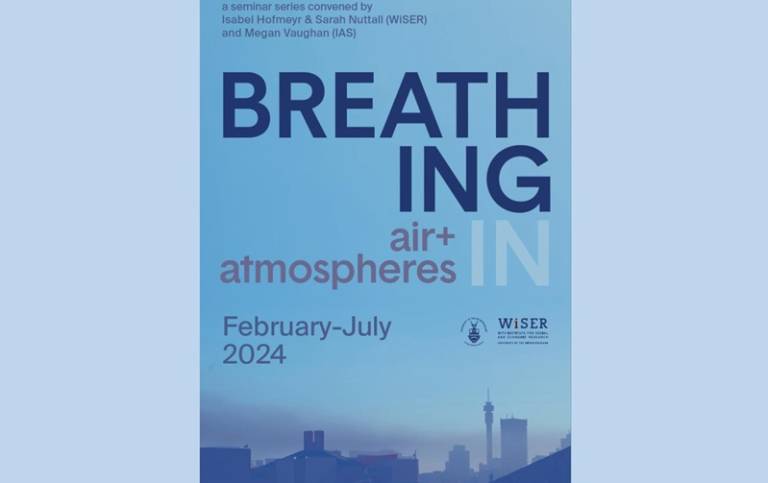Queen Idia’s Air: Saturation, Conditioning and Power
22 April 2024, 2:00 pm–3:00 pm

Breathing In: Air and Atmospheres Seminar with Dr Ruth Sacks, University of Johannesburg, South Africa. This seminar series is run jointly by the IAS and WiSER at Wits, and takes place fortnightly on Zoom.
This event is free.
Event Information
Open to
- All | UCL staff | UCL students
Availability
- Yes
Cost
- Free
Organiser
-
Professor Megan Vaughan – Institute of Advanced Studies
This paper embraces what reading for air can bring to a narrative of how a 16th century portrait of Queen Idia appears in Lagos. Likenesses of the legendary Edo queen have been fashioned in Benin tradition since her time (including in ivory and bronze). In Lagos, she is present and powerful in various visible manifestations. Queen Idia’s portrait slowly corrodes in laden air as part of the stadium built for FESTAC 77, the post independence festival of African culture for which she was claimed as an Afrofuturist figurehead. Her expression exudes serenity on carvings at dusty open air tourist markets, sometimes fashioned in fragrant woods. As graffiti-ed stencils in the city centre, she visibly bears the condensation of polluted particles. The warrior queen’s power over the spirit world, symbolically rendered in the crown of ocean symbols she customarily wears, melds her to an urban fabric saturated with more than human beings. Idia leads us into hierarchies of air, from the hermeneutic sealing of artworks in air-conditioned museums, which cuts off their breath, to the particular weathering of those buildings Lagos allows to stay standing. My thinking draws on Nnedi Okafor’s science fiction novel Lagoon (2015), where air-travelling interplanetary visitors challenge human perceptions of matter and spirit.
Breathing In: Air and Atmospheres Seminar
This seminar series, run jointly by the IAS and WiSER (Wits Institute for Social and Economic Research, University of the Witwatersrand) takes place fortnightly on Zoom. It builds on ongoing and emergent academic attention to air and atmospheres and draws out suggestions for future research and for ways of acting upon the contemporary air and atmospheric crisis, with a leading focus on global South contexts.
Recent work on infrastructures, atmospheres and the biospheric shifts associated with conditions of the Anthropocene have relied on rendering newly vivid those aspects of the social which have long been treated as background. Sensory ecologies - affective or experienced space which compose environments, in Matthew Gandy’s terms, are synesthetic: like sounds, they reverberate within human and more-than-human subjects. Affective atmospheres are shared bodily situations, drawing also on renewed and shifting elemental understandings of air and refracted light. How can we come conceptually closer to the toxicities of both air pollution and rising authoritarianisms, to material and metaphoric atmospheres – and other less-than-visible carriers of damage? And to a better sense of the entanglements and relationalities that such modes of thought can produce? The growing non-transparency of air, in Sumana Roy’s terms, produces paranoid reading: suspicious, anticipatory theories of negative affect. This occurs in the context of the ‘disappearance of air’ in favour of mask filters, air purifiers and the AQI (Air Quality Index) for those who can afford it. Yet there may also be a reparative range to these questions: making air explicative might offer analytic opportunities for sustenance and responsiveness to what is to come.
About the Speaker
Dr Ruth Sacks
Lecturer at University of Johannesburg
More about Dr Ruth SacksOther events in this series
 Close
Close

